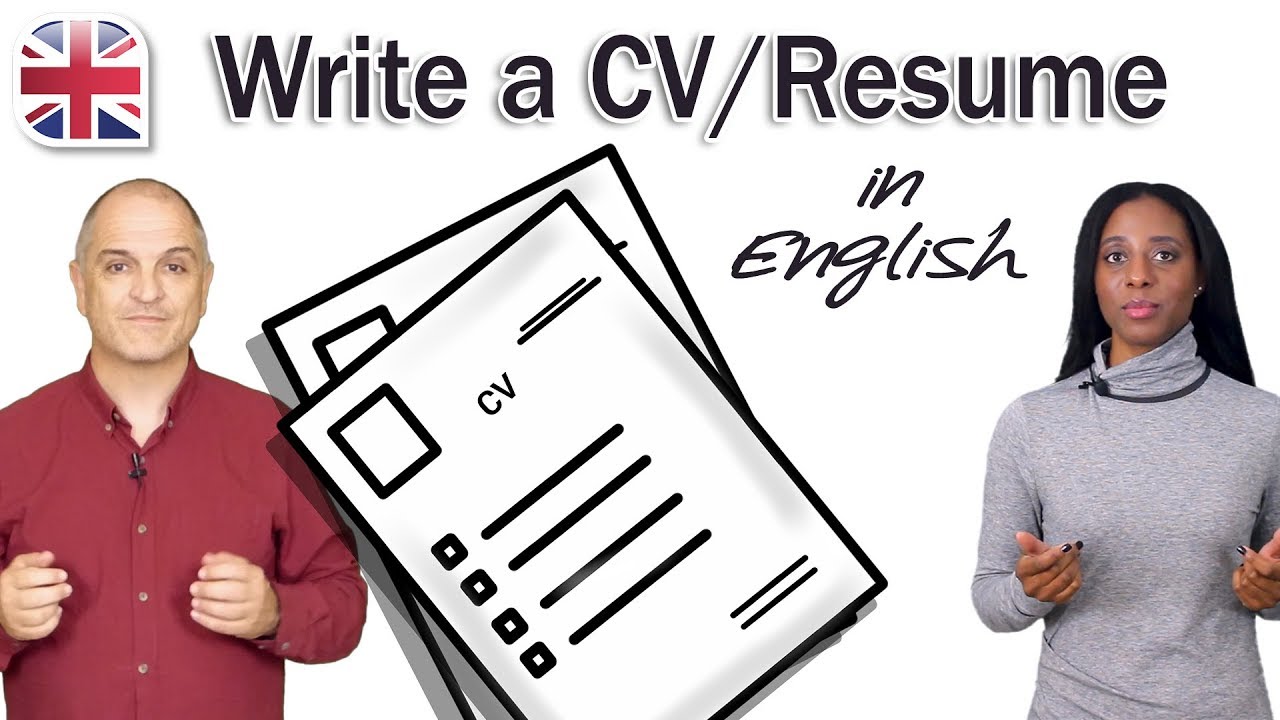Mastering Your Curriculum Vitae in English: Tips for a Standout Resume

🚀 Importance of a Well-Crafted Curriculum Vitae
Welcome to this comprehensive guide on creating an effective Curriculum Vitae (CV) in English. A CV is more than just a document detailing your work history; it’s your opportunity to showcase your skills, accomplishments, and potential to prospective employers. Crafting a compelling CV is crucial in today’s competitive job market as it serves as your first introduction to recruiters and hiring managers.
🌟 Understanding the Purpose of a CV
Before diving into the specifics of creating a standout CV, it’s essential to understand its primary purpose. A CV is a summary of your professional and academic experiences, qualifications, skills, and achievements. It provides a snapshot of who you are as a candidate and why you are the right fit for a particular role.
💼 Components of an Effective CV
An effective CV typically includes several key sections that highlight different aspects of your background and experience. These sections may include:
- Contact Information: Your name, phone number, email address, and location.
- Professional Summary: A brief overview of your skills and experiences.
- Work Experience: Details of your previous employment history.
- Education: Your academic qualifications and certifications.
- Skills: A list of relevant skills and competencies.
- Achievements: Notable accomplishments in your career.
- References: Optional but can provide additional credibility.
📝 Crafting a Compelling Professional Summary
Your professional summary serves as the opening statement of your CV and should grab the reader’s attention. Highlight your key skills, experiences, and career goals in a concise manner. This section sets the tone for the rest of your CV and should demonstrate your value proposition to potential employers.
✨ Example:
“Results-driven marketing professional with over five years of experience in digital marketing. Skilled in strategic planning, content creation, and campaign optimization.”
📚 Showcasing Your Work Experience
When detailing your work experience, focus on providing specific examples of your contributions and achievements in each role. Use action verbs to begin each bullet point and quantify your accomplishments whenever possible. This demonstrates your impact and capabilities to prospective employers.
🎓 Highlighting Your Education and Credentials
Include information about your educational background, including degrees, certifications, and relevant coursework. If you have specialized training or professional development, be sure to emphasize these qualifications in this section. Education can be a significant differentiator for certain roles.
🔧 Showcasing Your Skills and Abilities
Listing your skills is crucial to give employers a quick overview of your capabilities. Include both technical skills (e.g., programming languages, software proficiency) and soft skills (e.g., communication, teamwork). Tailor your skills section to align with the requirements of the job you are applying for.
🏆 Highlighting Your Achievements
Employers are interested in tangible results, so be sure to highlight any notable achievements in your CV. Whether you increased sales revenue, improved processes, or received awards, showcasing your successes demonstrates your ability to deliver results and adds credibility to your application.
📞 Providing References
While including references in your CV is optional, having a list of professional references can strengthen your candidacy. Choose individuals who can speak to your work ethic, skills, and accomplishments. Be sure to inform your references in advance and provide their contact information in a separate document.
🚀 Tailoring Your CV for Each Job Application
It’s crucial to customize your CV for each job application to highlight the most relevant skills and experiences. Analyze the job description carefully and align your CV with the requirements of the position. By tailoring your CV, you demonstrate your genuine interest in the role and increase your chances of success.
🌐 Leveraging Online Tools for CV Creation
There are numerous online tools and resources available to assist you in creating a visually appealing and well-organized CV. Websites like Canva, Novoresume, and Adobe Spark offer templates and design options that can help your CV stand out. Utilize these tools to present your information effectively.
📌 Proofreading and Formatting Tips
Before submitting your CV, ensure that you proofread it carefully for spelling and grammatical errors. Consistent formatting, clear headings, and bullet points can enhance the readability of your CV. Ask a friend or mentor to review your CV to provide feedback and suggestions for improvement.
🔍 Seeking Feedback and Revising Your CV
Don’t hesitate to seek feedback from professionals in your industry or career advisors. Constructive feedback can help you identify areas for improvement and make your CV more compelling. Revise your CV regularly to reflect your latest accomplishments and experiences.
🚀 Final Thoughts
Creating a well-crafted Curriculum Vitae in English is a critical step in your job search journey. By investing time and effort into developing a comprehensive and tailored CV, you can effectively communicate your skills and qualifications to potential employers. Remember to continuously update and refine your CV to align with your career goals and aspirations.
🌟 Frequently Asked Questions (FAQs)
🔹 Should I include a photo in my CV?
Unless explicitly requested by the employer, it’s generally advisable to avoid including a photo in your CV to focus on your professional qualifications and experiences.
🔹 How long should my CV be?
While there is no strict rule, a standard CV typically ranges from one to two pages. Ensure that your CV is concise and relevant, highlighting your most impactful experiences.
🔹 Is it necessary to include a cover letter with my CV?
While not always mandatory, including a tailored cover letter can complement your CV by providing additional context and demonstrating your interest in the position. Consider including a cover letter for applications where it is encouraged.
